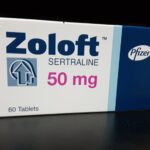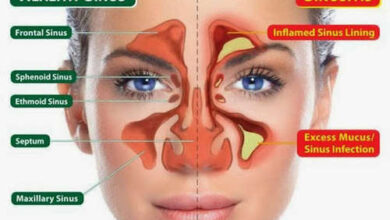Can You Snort Zoloft?

Zoloft is a selective serotonin reuptake inhibitors (SSRIs) class of antidepressants which works by increasing the amounts of serotonin, a natural substance in the brain that helps maintain mental balance. It contains the active ingredient Sertraline.
Zoloft is used to treat depression, obsessive-compulsive disorder (bothersome thoughts that won’t go away and the need to perform certain actions over and over), panic attacks (sudden, unexpected attacks of extreme fear and worry about these attacks), posttraumatic stress disorder (disturbing psychological symptoms that develop after a frightening experience), and social anxiety disorder (extreme fear of interacting with others or performing in front of others that interferes with normal life). It is also used to relieve the symptoms of premenstrual dysphoric disorder, including mood swings, irritability, bloating, and breast tenderness.
Can you snort Zoloft?
No you should not snort Zoloft. Antidepressants don’t have the euphoric effects other drugs have. In other words, antidepressants can’t get you high. That doesn’t stop some people from trying, though. Some people think that since antidepressants improve mood, high doses must induce euphoria, but that is not how the drugs work.
Rates of prescription drug abuse have reached epidemic proportions. Large-scale epidemiologic surveys of this under-recognized clinical problem have not included antidepressants despite their contribution to morbidity and mortality. There is no concrete evidence that the abuse of Zoloft results in a high for the user, but there is also no solid evidence to the contrary. Some say it is possible to abuse the drug by first crushing and then snorting it. If exceptionally large amounts of Zoloft are used in this way, the person may experience a high. Others report that this practice results in no feeling at all or else an experience that is painful or annoying.
It has been noted that use of illicit substances while taking Zoloft may render the medication ineffective and worsen the side effects. Additionally, according to the New York State Office of Alcoholism and Substance Abuse Services, combining alcohol with SSRIs like Zoloft can impair cognitive and motor functioning.
In addition, drinking alcohol while taking or abusing antidepressants like Zoloft is generally not advised because alcohol can make depression worse. It can also increase the side effects of some antidepressants, such as drowsiness, dizziness and co-ordination problems.
Zoloft Safety
A small number of children, teenagers, and young adults (up to 24 years of age) who took antidepressants (‘mood elevators’) such as sertraline during clinical studies became suicidal (thinking about harming or killing oneself or planning or trying to do so). Children, teenagers, and young adults who take antidepressants to treat depression or other mental illnesses may be more likely to become suicidal than children, teenagers, and young adults who do not take antidepressants to treat these conditions. However, experts are not sure about how great this risk is and how much it should be considered in deciding whether a child or teenager should take an antidepressant.
You should know that your mental health may change in unexpected ways when you take sertraline or other antidepressants even if you are an adult over 24 years of age. You may become suicidal, especially at the beginning of your treatment and any time that your dose is increased or decreased. You, your family, or your caregiver should call your doctor right away if you experience any of the following symptoms: new or worsening depression; thinking about harming or killing yourself, or planning or trying to do so; extreme worry; agitation; panic attacks; new or worsening anxiety; difficulty falling asleep or staying asleep; aggressive behavior; irritability; acting without thinking; severe restlessness; and frenzied abnormal excitement. Be sure that your family or caregiver knows which symptoms may be serious so they can call the doctor if you are unable to seek treatment on your own.
Your healthcare provider will want to see you often while you are taking sertraline, especially at the beginning of your treatment. Be sure to keep all appointments for office visits with your doctor.
The doctor or pharmacist will give you the manufacturer’s patient information sheet (Medication Guide) when you begin treatment with sertraline. Read the information carefully and ask your doctor or pharmacist if you have any questions. You also can obtain the Medication Guide from the FDA website





